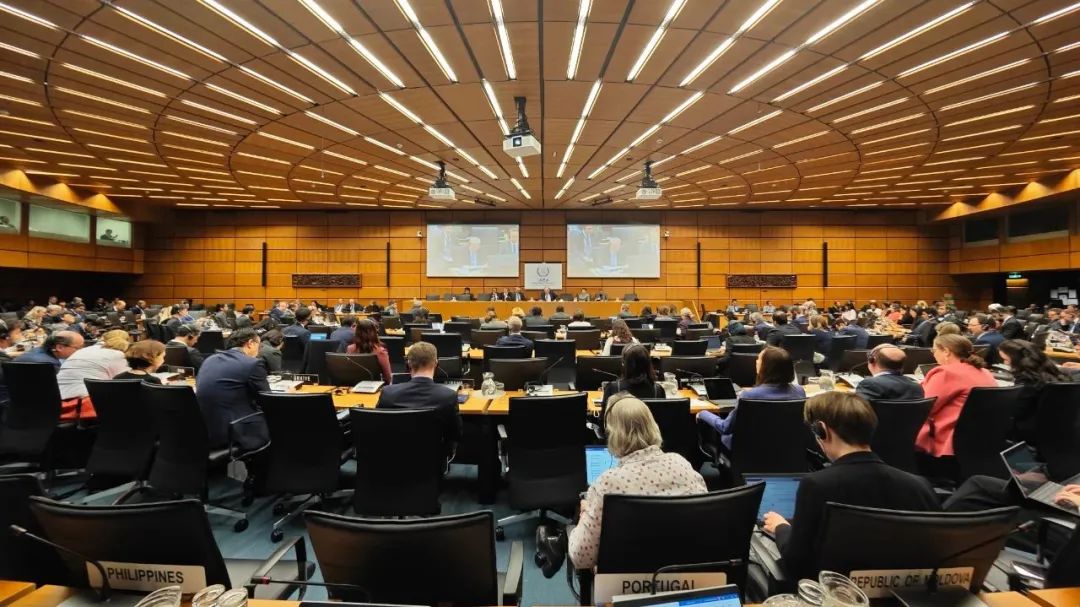China’s Statement under AOB at the November BoG Session
Mr. Chair,
Since the end of last August, in disregard of the widespread doubts from the international community and strong opposition of countries concerned, Japan has unilaterally started and continuously proceeded with the release of the Fukushima nuclear-contaminated water into the ocean. As of to date, over 20,000 tons of nuclear-contaminated water were poured into the Pacific. The discharge of the Fukushima nuclear-contaminated water is a major issue about nuclear safety and has a bearing upon the health of the whole mankind, global marine environment and international public interests. It is by no means a private matter for Japan. China’s position on this issue is consistent and clear. We oppose Japan’s unilateral act of release and urge Japan to stop the ocean discharge. At the meeting a few days ago with Japanese Prime Minster, Mr. Fumio Kishida, President Xi Jinping pointed out that Japan should take seriously legitimate domestic and international concerns and properly address the issue of Fukushima nuclear-contaminated water in a responsible and constructive manner.

The intentional release of water contaminated by a nuclear accident into ocean is something unprecedented and there are huge uncertainties in the accumulated effect upon the ocean by the tremendous amounts radioactive nuclides discharged into the ocean. With more and more Fukushima nuclear- contaminated water discharged into the ocean, the international community just can neither take the long-term effectiveness or reliability of Japan’s purification facility for granted and nor presume that there would be no failures or mistakes in Japan’s administration of the discharge for 30 years. With regard to Japan’s wilful persistence in the discharge, China has resolutely advocated and actively promoted comprehensive strengthening of international monitoring and continuously improvement of the long-term international monitoring arrangement on the release of the Fukushima nuclear-contaminated ware.
Mr. Chair,
China notes that since the 67th session of the General Conference, DG Grossi has established presence of IAEA experts in Japan for on-site monitoring of the discharge, sent experts to Fukushima NPP for sampling and comparative
analysis and organised the visit of the IAEA Task Force to Japan for safety review. China is of the view that the IAEA Secretariat should continue to update Member States, in particular the stakeholder countries in a timely, comprehensive and detailed manner on its on-site sampling and monitoring activities, and the Secretariat should be attentive to the concerns, comments and suggestions of all countries, including those of the stakeholder countries and focus on establishing a stringent and effective long-term international monitoring arrangement led by the Agency and with the substantive participation of stakeholders. China requests the Secretariat to continue to enhance its communication with the Member States and strengthen this international monitoring arrangement on Japan with an objective, impartial and scientific attitude. IAEA Member States and the Board of Governors should play their roles in the process of monitoring arrangement improvement and conduct regular reviews on Japan’s discharge and the international monitoring arrangement.
If Japan truly adopted a responsible attitude on the disposal of Fukushima nuclear-contaminated water and is confident in the safety disposal, it should adopt a more open, transparent and cooperative attitude to conduct full and meaningful consultations with the stakeholder countries, pay great attention to the concerns and comments of all parties and actively support the Agency to continuously strengthen the international arrangement on monitoring the ocean discharge. China urges Japan to assume a serious, responsible and constructive attitude to continue the discussion with the Agency and Member States and fully cooperate with stringent international monitoring.
China stands ready to work together with all the stakeholders, support the leading role of the Agency and actively take part in the efforts to strengthen the independent and effective long-term international monitoring arrangement in a scientific and responsible manner in order to prevent the long-term harm upon the marine environment and human health from Japan’s ocean discharge.
Thank you, Mr. Chair.
